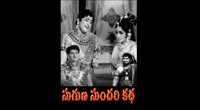| Muhi-ud-din Muhammad Aurangzeb ?????????? ??? ????? ????? | |||||||||
|---|---|---|---|---|---|---|---|---|---|
|
Padishah of the Mughal Empire Aurangzeb Bahadur Alamgir I | |||||||||
 Emperor Aurangzeb seated on a throne in the darbar with a hawk, with his son Azam Shah and other courtiers | |||||||||
| 6th Mughal Emperor | |||||||||
| Reign | 31 July 1658 – 3 March 1707 | ||||||||
| Coronation | 13 June 1659 at Shalimar Bagh, Delhi | ||||||||
| Predecessor | Shah Jahan | ||||||||
| Successor |
Muhammad Azam Shah (titular) Bahadur Shah I | ||||||||
| Born |
Mu?? al-D?n Mu?ammad 3 November 1618 (N.S.) Dahod, Mughal Empire | ||||||||
| Died |
3 March 1707 (N.S.) (aged 88) Ahmednagar, Mughal Empire | ||||||||
| Burial | Tomb of Aurangzeb, Khuldabad | ||||||||
| Consort | Dilras Banu Begum | ||||||||
| Wives |
Nawab Bai Aurangabadi Mahal | ||||||||
| Issue |
| ||||||||
| |||||||||
| House | Timurid | ||||||||
| Father | Shah Jahan | ||||||||
| Mother | Mumtaz Mahal | ||||||||
| Religion | Islam | ||||||||
Muhi-ud-Din Muhammad (Persian: ??? ????? ?????) (3 November 1618 – 3 March 1707), commonly known by the sobriquet Aurangzeb (Urdu: ????????? ??), (Persian: ?????????? "Ornament of the Throne") or by his regnal title Alamgir (Urdu: ???????? ??), (Persian: ???????? "Conqueror of the World"), was the sixth, and widely considered the last effective Mughal emperor. His reign lasted for 49 years from 1658 until his death in 1707.
Aurangzeb was a notable expansionist and during his reign, the Mughal Empire reached its greatest extent, ruling over nearly all of the Indian subcontinent. During his lifetime, victories in the south expanded the Mughal Empire to 4 million square kilometres, and he ruled over a population estimated to be over 158 million subjects, with an annual yearly revenue of $450 million (more than ten times that of his contemporary Louis XIV of France), or £38,624,680 (2,879,469,894 rupees) in 1690. Under his reign, the Mughal Empire surpassed China to become the world's largest economy, worth over $90 billion, nearly a quarter of world GDP in 1700.
Aurangzeb has been subject to controversy and criticism by a majority of scholars for his policies that abandoned his predecessors' legacy of pluralism and religious tolerance, citing his introduction of the Jizya tax, destruction of Hindu temples, execution or forced conversion of his non-Muslim subjects to Islam and execution of the ninth Sikh guru, Guru Tegh Bahadur. . A number of historians argue that his bigotry and destruction of temples have been exaggerated.
It was at the end of his reign that the downfall of the Mughal Empire began due to his policy of religious intolerance. Rebellions and wars eventually led to the exhaustion of the imperial Mughal treasury and army. He was a strong-handed authoritarian ruler, and following his death the expansionary period of the Mughal Empire came to an end. Nevertheless, the contiguous territory of the Mughal Empire still remained intact more or less until the reign of Muhammad Shah.
Contents
Early life
Aurangzeb was born on 3 November 1618, in Dahod, Gujarat. He was the third son and sixth child of Shah Jahan and Mumtaz Mahal. In June 1626, after an unsuccessful rebellion by his father, Aurangzeb and his brother Dara Shukoh were kept as hostages under their grandparents' (Nur Jahan and Jahangir) Lahore court. On 26 February 1628, Shah Jahan was officially declared the Mughal Emperor, and Aurangzeb returned to live with his parents at Agra Fort, where Aurangzeb received his formal education in Arabic and Persian. His daily allowance was fixed at Rs. 500, which he spent on religious education and the study of history.
On 28 May 1633, Aurangzeb escaped death when a powerful war elephant stampeded through the Mughal Imperial encampment. He rode against the elephant and struck its trunk with a lance, and successfully defended himself from being crushed. Aurangzeb's valour was appreciated by his father who conferred him the title of Bahadur (Brave) and had him weighed in gold and presented gifts worth Rs. 200,000. This event was celebrated in Persian and Urdu verses, and Aurangzeb said:
If the (elephant) fight had ended fatally for me, it would not have been a matter of shame. Death drops the curtain even on Emperors; it is no dishonor. The shame lay in what my brothers did!
Early military campaigns and administration
Bundela War
Aurangzeb was nominally in charge of the force sent to Bundelkhand with the intent of subduing the rebellious ruler of Orchha, Jhujhar Singh, who had attacked another territory in defiance of Shah Jahan's policy and was refusing to atone for his actions. By arrangement, Aurangzeb stayed in the rear, away from the fighting, and took the advice of his generals as the Mughal Army gathered and commenced the Siege of Orchha in 1635.The campaign was successful and Singh was removed from power.
Viceroy of the Deccan
Aurangzeb was appointed viceroy of the Deccan in 1636. After Shah Jahan's vassals had been devastated by the alarming expansion of Ahmednagar during the reign of the Nizam Shahi boy-prince Murtaza Shah III, the emperor dispatched Aurangzeb, who in 1636 brought the Nizam Shahi dynasty to an end. In 1637, Aurangzeb married the Safavid princess Dilras Banu Begum, posthumously known as Rabia-ud-Daurani. She was his first wife and chief consort as well as his favourite. He also had an infatuation with a slave girl, Hira Bai, whose death at a young age greatly affected him. In his old age, he was under the charms of his concubine, Udaipuri Bai. The latter had formerly been a companion to Dara Shukoh. In the same year, 1637, Aurangzeb was placed in charge of annexing the small Rajput kingdom of Baglana, which he did with ease.
In 1644, Aurangzeb's sister, Jahanara, was burned when the chemicals in her perfume were ignited by a nearby lamp while in Agra. This event precipitated a family crisis with political consequences. Aurangzeb suffered his father's displeasure by not returning to Agra immediately but rather three weeks later. Shah Jahan had been nursing Jahanara back to health in that time and thousands of vassals had arrived in Agra to pay their respects. Shah Jahan was outraged to see Aurangzeb enter the interior palace compound in military attire and immediately dismissed him from his position of viceroy of the Deccan; Aurangzeb was also no longer allowed to use red tents or to associate himself with the official military standard of the Mughal emperor. Other sources tell us that Aurangzeb was dismissed from his position because Aurangzeb left the life of luxury and became a Faqir.
In 1645, he was barred from the court for seven months and mentioned his grief to fellow Mughal commanders. Thereafter, Shah Jahan appointed him governor of Gujarat where he served well and was rewarded for bringing stability.
In 1647, Shah Jahan moved Aurangzeb from Gujarat to be governor of Balkh, replacing a younger son, Murad Baksh, who had proved ineffective there. The area was under attack from Uzbek and Turkmen tribes. While the Mughal artillery and muskets were a formidable force, so too were the skirmishing skills of their opponents. The two sides were in stalemate and Aurangzeb discovered that his army could not live off the land, which was devastated by war. With the onset of winter, he and his father had to make a largely unsatisfactory deal with the Uzbeks, giving away territory in exchange for nominal recognition of Mughal sovereignty. The Mughal force suffered still further with attacks by Uzbeks and other tribesmen as it retreated through the snow to Kabul. By the end of this two-year campaign, into which Aurangzeb had been plunged at a late stage, a vast sum of money had been expended for little gain.
Further inauspicious military involvements followed, as Aurangzeb was appointed governor of Multan and Sindh. His efforts in 1649 and 1652 to dislodge the Safavids at Kandahar, which they had recently retaken after a decade of Mughal control, both ended in failure as winter approached. The logistical problems of supplying an army at the extremity of the empire, combined with the poor quality of armaments and the intransigence of the opposition have been cited by John Richards as the reasons for failure, and a third attempt in 1653, led by Dara Shikoh, met with the same outcome.
Aurangzeb became viceroy of the Deccan again after he was replaced by Dara Shukoh in the attempt to recapture Kandahar. Aurangzeb regretted this and harboured feelings that Shikoh had manipulated the situation to serve his own ends. Aurangbad's two jagirs (land grants) were moved there as a consequence of his return and, because the Deccan was a relatively impoverished area, this caused him to lose out financially. So poor was the area that grants were required from Malwa and Gujarat in order to maintain the administration and the situation caused ill-feeling between father and son. Shah Jahan insisted that things could be improved if Aurangzeb made efforts to develop cultivation. Aurangzeb appointed Murshid Quli Khan to extend to the Deccan the zabt revenue system used in northern India. Murshid Quli Khan organised a survey of agricultural land a
Watch movie Aurangzeb online on Amazon
Watch movie Aurangzeb online
Watch The Movie On PrimeSant Gyaneshwar Full HD Movie Download

Amar Akbar Anthony Full HD Movie Download

Taal Full HD Movie Download

Chhoti Si Mulaqat Full HD Movie Download

Dr Vidya Full HD Movie Download

Chhoti Behen Full HD Movie Download

Bhediyon Ke Samooh Full HD Movie Download

Mumbai Meri Jaan Full HD Movie Download

Ankahee (1985) Full HD Movie Download
.jpg)
Fashion (2008) Full HD Movie Download
.jpg)
Tumsa Nahin Dekha (1957) Full HD Movie Download
.jpg)
Hunt for Red October Full HD Movie Download

Azaad (1978) Full HD Movie Download
.jpg)
Suguna Sundari Katha Full HD Movie Download

Shiva-The Power Full HD Movie Download

Troy Full HD Movie Download

Patli Kamar Lambe Bal Full HD Movie Download

Dupe Dupe Dupe Full HD Movie Download

Ranabheri Full HD Movie Download

Toli Parichayam Full HD Movie Download

Maavuri Kittayya Full HD Movie Download

Download latest Movie from bollywood
- 1> baaghi 3
- 2> THE SKY IS PINK MOVIE FULL STORY AND REVIEW
- 3> Luka Chuppi
- 4> TO ALL THE BOYS I’VE LOVED BEFORE
- 5> Kabir Singh
- 6> Street Dancer 3D
- 7> Simmba
- 8> Gone Girl
- 9> The Girl Who Lived
- 10> Ludo
- 11> DILWALE DULHANIA LE JAYENGE
- 12> GUILTY
- 13> The Godfather
- 14> Adventures of Rusty
- 15> Sooryavanshi
- 16> Satyameva Jayate 2
- 17> Thappad
- 18> Bhool Bhulaiyaa 2
- 19> KGFChapter 2
- 20> Mardaani 2
- 21> Pinjar
- 22> Shivaji maharaj
- 23> Ek Villian 2
- 24> Hungama 2
- 25> Divergent
- 26> Mumbai Saga
- 27> The Internship
- 28> HIT (telugu)
- 29> Panga
- 30> The perfect date
- 31> 16 December
- 32> Gopala Gopala (Telugu)
- 33> Brahmastra
- 34> Gangubai Kathiawadi
- 35> Manmadhudu
- 36> Nenu local
- 37> Mahanati
- 38> Shatamanam bavathi
- 39> Lagaan
- 40> After
- 41> MOM
- 42> Shamshera
- 43> Raguvaran BTech
- 44> Khakee
- 45> The villain
- 46> OM
- 47> Mr. perfect
- 48> Bueatifull mind
- 49> Hichki
- 50> Gabbar Singh
- 51> Jogi
- 52> Before Sunrise
- 53> Before Sunset
- 54> Before Midnight
- 55> The Big Bull
- 56> Top Gun: Maverick
- 57> The Purge
- 58> The Sky is Pink
- 59> Laxmmi Bomb
- 60> Sadak 2
- 61> Sufna
- 62> Prithviraj
- 63> PK
- 64> Coolie No 1(2020)
- 65> Black Widow
- 66> Dear Zindagi
- 67> Dil Bechara
- 68> PHIR HERA PHERI
- 69> WAR
- 70> Dostana
- 71> RRR: Roudram Ranam Rudhiram
- 72> Maidan
- 73> Dabbang 3
- 74> Chhalaang
- 75> life as we know it
- 76> SherShaah
- 77> Sandeep Aur Pinky Faraar
- 78> Event Horizon
- 79> 83
- 80> Radhe: Your Most Wanted Bhai
- 81> Gunjan Saxena: The Kargil Girl
- 82> Mr India
- 83> Vivah
- 84> Anokha Bandhan
- 85> Ghost
- 86> Bhoot: Part One - The Haunted Ship
- 87> Haseen Dilruba
- 88> Laal Singh Chaddha
- 89> Qismat
- 90> Rajput
- 91> Drive
- 92> Dil Chahta Hai
- 93> Dil Ki Baazi
- 94> Dil Ka Rishta
- 95> Teesri Manzil
- 96> Dil
- 97> Love Aaj Kal
- 98> Khaali Peeli
- 99> Bunty Aur Babli 2
- 100> Atrangi Re
- 101> Gulabo Sitabo
- 102> Jodi
- 103> Suraj Pe Mangal Bhari
- 104> Deewana
- 105> Attack
- 106> Sardar Udham Singh
- 107> Toofan
- 108> THE LOVEBIRDS
- 109> Jersey
- 110> Ginny Weds Sunny
- 111> Thalaivi
- 112> Shiddat
- 113> Angels vs Zombies
- 114> Koi Mil Gya
- 115> Thank God
- 116> Bhuj: The Pride of India
- 117> Hum Aapke Hain Kaun
- 118> The Platform
- 119> Bird Box
- 120> Roohi Afzana
- 121> Torbaaz
- 122> Nikamma
- 123> World War Z
- 124> Extraction
- 125> Train to Busan
- 126> Life of Pi
- 127> SHAADI MEIN JROOR AANA
- 128> Himmat Aur Mehnat
- 129> To All The Boys: P.S. I Still Love You
- 130> Mimi
- 131> Good Newwz
- 132> Shubh Mangal Zyada Saavdhan
- 133> Raabta
- 134> Harry Potter and the Philosopher's Stone
- 135> Harry Potter and the Chamber of Secrets
- 136> Chhapaak
- 137> War of the Worlds
- 138> Harry Potter and the Prisoner of Azkaban
- 139> Harry Potter and the Goblet of Fire
- 140> MURDER MYSTERY
- 141> Shakuntala Devi
- 142> Bachchan Pandey
- 143> Jayeshbhai Jordar
- 144> Sheer Qorma
- 145> Saina
- 146> 'O' Pushpa I hate tears
- 147> Kedarnath
- 148> MS Dhoni The Untold Story
- 149> Chhichhore
- 150> Badhaai Ho
- 151> Unstoppable
- 152> Oz the Great And Powerful
- 153> The Girl on the Train
- 154> Haathi Mere Saathi 2020
- 155> The Conjuring: The Devil Made Me Do It
- 156> Gandhi Se Pehle Gandhi
- 157> The Song of Scorpions
- 158> Srimanthudu
- 159> Hello Guru Prema Kosame
- 160> Beauty and The Beast
- 161> Black Panther
- 162> Charlie and the Chocolate Factory
- 163> Bole Chudiyan
- 164> Fidaa
- 165> Duvvada Jagannadham
- 166> Bruce Lee: The Fighter
- 167> Hyper
- 168> Yaara
- 169> Red (2020)
- 170> Shivam
- 171> That Is Mahalakshmi
- 172> Nishabdham
- 173> Aashram 2020 web series
- 174> Laxmii
- 175> Mismatched
- 176> STUDENT OF THE YEAR 2
- 177> NAIL POLISH
- 178> Ramprasad Ki Tehrvi
- 179> KAAGAZ
- 180> 12 o Clock
- 181> The Power
- 182> bolo hau
- 183> Tribhanga
- 184> JAMUN
- 185> Madam Chief Minister
- 186> Maasaab
- 187> Aadhaar
- 188> Tanhaji
- 189> Bhaagi 3
- 190> Bhootnath
- 191> MALANG
- 192> Jai Mummy Di
- 193> Haathi Mere Saathi 2021
- 194> Shakeela
- 195> Unpaused
- 196> Annayya
- 197> Vamsoddharakudu
- 198> Mrugaraju
- 199> Narasimha Naidu
- 200> Sankranti
- 201> Manasu Maata Vinadhu
- 202> Anjaane
- 203> Apaharan
- 204> Bachke Rehna Re Baba
- 205> Bewafaa
- 206> Roohi
- 207> Radhe
- 208> Zindagi Khoobsoorat Hai
- 209> Yeh Mohabbat Hai
- 210> Yeh Kya Ho Raha Hai?
- 211> The Tomorrow War
- 212> DehradunDiary
- 213> Meri Shaadi Karaoo
- 214> Matruu Ki Bijlee Ka Mandola
- 215> No One Killed Jesica
- 216> Aag Ka Goola
- 217> Eight Million Dollars
- 218> Three Hundred
- 219> Cats and Dog
- 220> Decoy
- 221> Gold Rush
- 222> You Have Got Mail
- 223> Final Destination three
- 224> Tofan
- 225> Jungle
